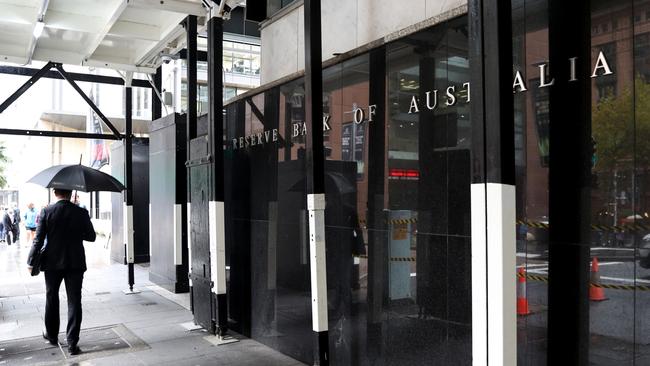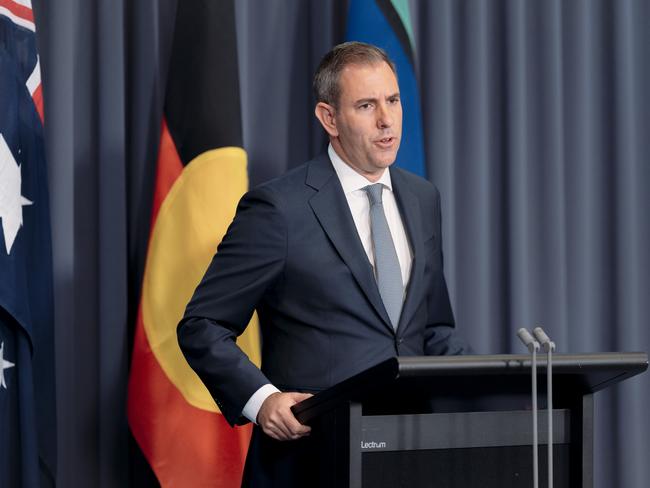RBA’s new monetary policy board needs to prove its worth
The board changes suggest Treasurer Jim Chalmers has opted for tinkering rather than a complete overhaul.

Following a lengthy and highly critical external review of the Reserve Bank, Jim Chalmers announced on Monday the line-up for the nation’s new and powerful monetary policy board.
However, instead of delivering the bold transformation and modernisation needed to propel the central bank into the future, the Treasurer offered a set of changes that fizzled, disappointing those expecting significant reform.
“It’s a little beige,” one central bank watcher said.
From March, the RBA will adopt a dual-board structure, with one governance board and a separate board for setting interest rates.
This new framework replaces the current single-board system, which the external review deemed outdated and unfit for purpose.
The monetary policy board is expected to operate with greater transparency, deepen debates around interest rates, and actively challenge the RBA’s policy stance when necessary.
Its members will be required to speak publicly, take questions from the media and justify their policy decisions.
Calls for reform gained traction after the RBA faced years of criticism for its response to the Covid-19 pandemic and its delayed reaction to the subsequent surge in inflation.
Ironically, prior to the pandemic, the RBA was often criticised for persistently low inflation and wage growth.
In a country where mortgage debt is high and property speculation is almost a national pastime, interest rates and their direction are never far from public and political discourse.
When Chalmers announced only two changes to the monetary policy board at his press conference, it felt underwhelming.

Departing the board are Carol Schwartz, a business leader with experience in property, finance and the arts, and Elana Rubin, who has a background in funds management.
They will be replaced by senior banker Marnie Baker and academic Renee Fry-McKibbin.
While the new members are likely to contribute meaningfully to discussions on interest rates, the minimal changes suggest that Chalmers has opted for tinkering rather than a complete overhaul of the RBA.
Chalmers could have pushed for more substantial reform by bringing in heavy hitters, such as recently retired chief economists from major banks, to refresh the board and bolster debates on interest rates and broader economic policy.
Amid chronically low productivity, Australia is overdue for economic reform. A re-energised RBA board could have been the catalyst for such change.
The revamped board is unlikely to upset money market traders, many of whom anticipate that the RBA will begin cutting interest rates in February.
Andrew Boak, chief economist at Goldman Sachs, noted that the new board represented continuity rather than drastic change.
“This reduces the odds that the current board defers the decision to cut rates until the RBA’s new board structure starts in March,” Boak said.
In the coming months, the board will face intense scrutiny as members are expected to speak publicly, replacing the current system where many members avoid public appearances or media engagement.
The new board has a long road ahead to demonstrate that it can deliver better outcomes for the country – tackling inflation, ensuring financial stability, and achieving full employment.
There’s a real possibility the board may fall short of expectations.
Critics of the changes, including former RBA governors Bernie Fraser and Ian Macfarlane, have voiced concerns that the changes will undermine the governor’s influence in setting policy direction.
The demands for change also fail to recognise that the last 30 years have largely featured low inflation and sustained economic growth, they say.
While there have been challenges, such as the Global Financial Crisis and the Asian financial crisis, Australia’s economy has remained resilient. Unemployment recently dropped to its lowest levels in 50 years, and Australia’s economic orthodoxy is widely admired internationally.
It remains to be seen whether the new RBA board will meaningfully sharpen economic debates or deliver better outcomes.
The board reforms under Chalmers will need to prove their worth.
Dow Jones Newswires





To join the conversation, please log in. Don't have an account? Register
Join the conversation, you are commenting as Logout